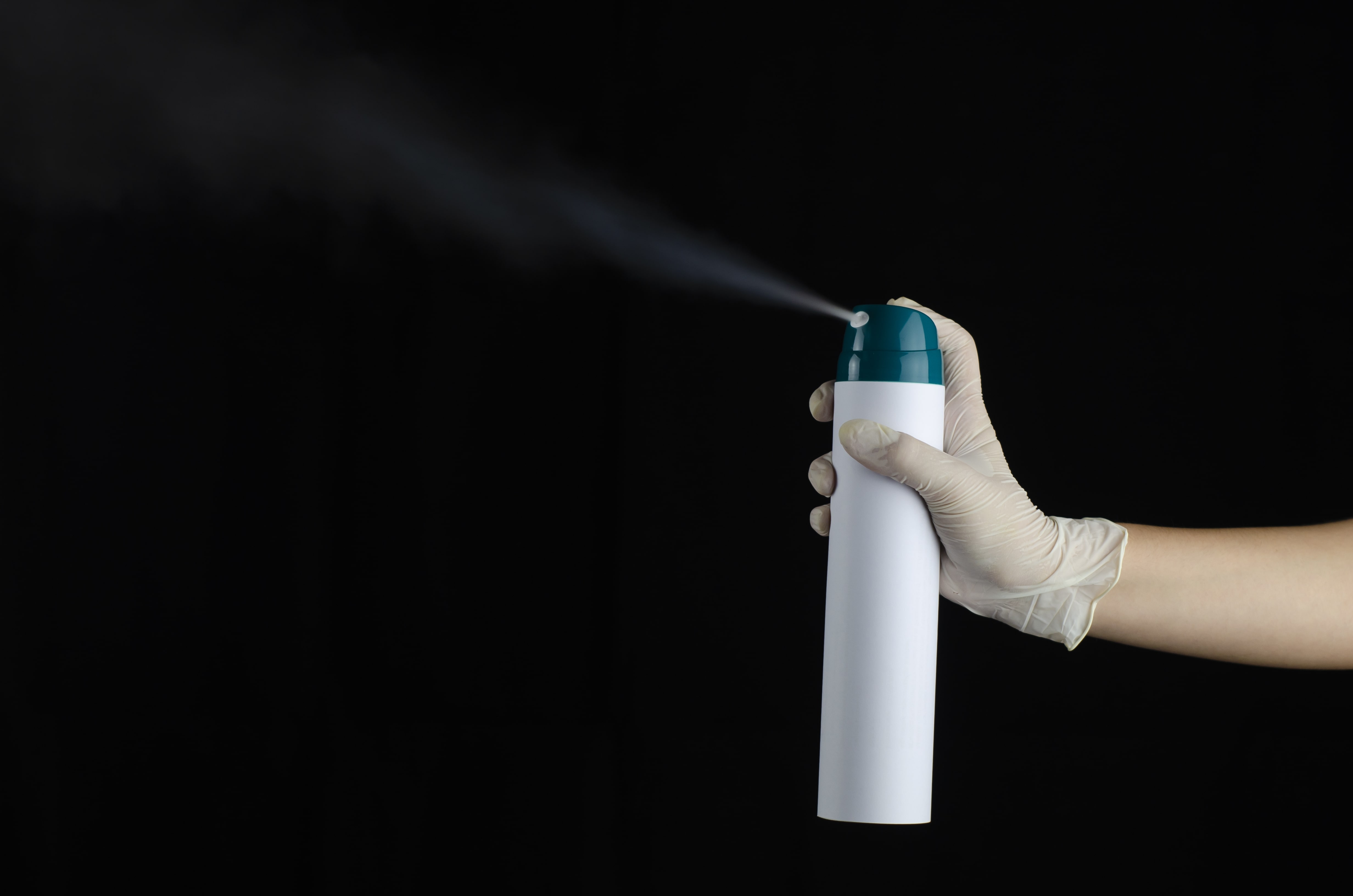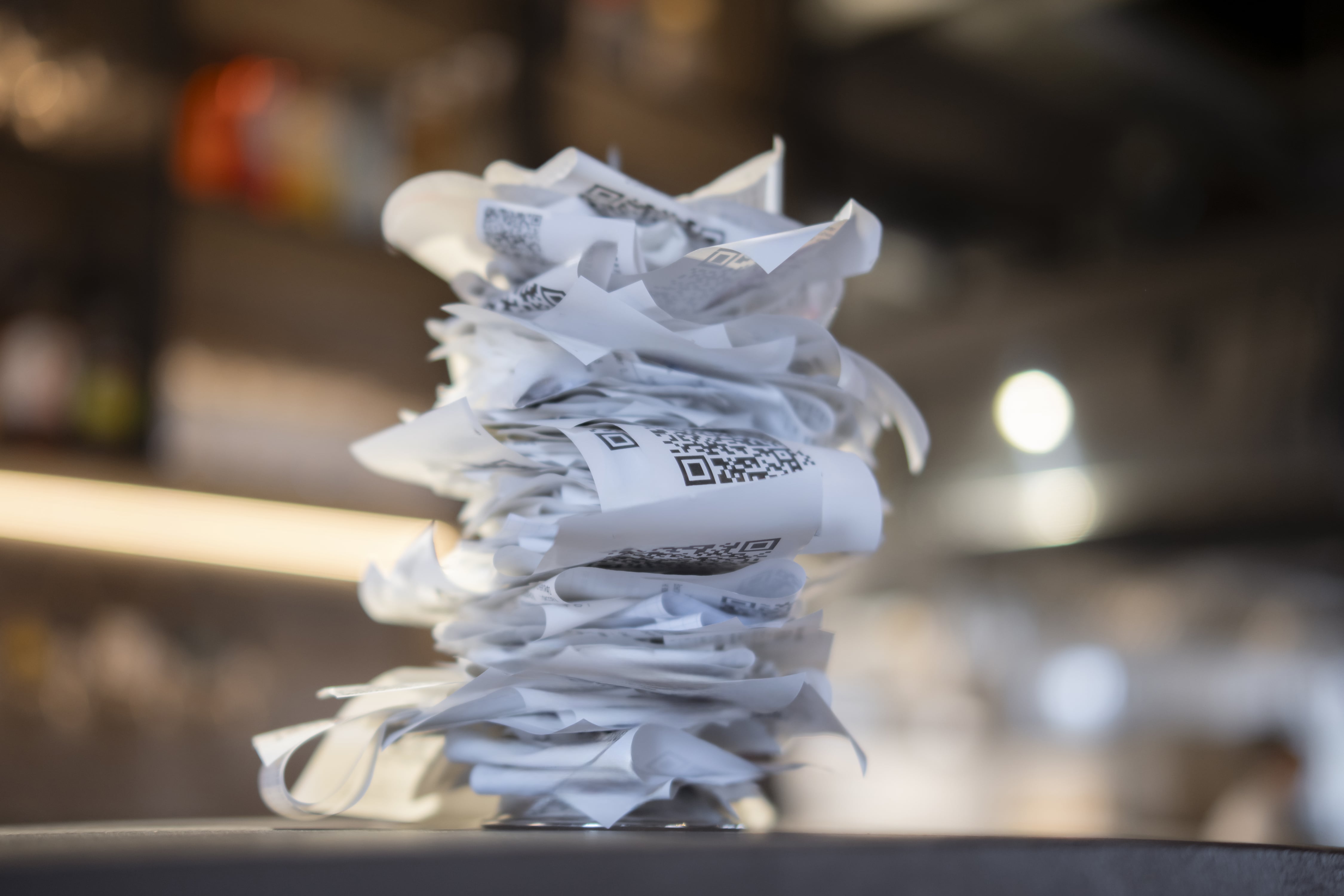From October 14th to 20th, 2024, First Mile is celebrating Recycle Week, a national campaign dedicated to promoting recycling and debunking common misconceptions.
This year's theme, "Rescue Me," encourages individuals and businesses to rethink their waste habits and ensure recyclable items don't end up in the landfill. Let's explore some of the most persistent recycling myths and discover how you can make a positive impact.
Myth #1: you can't recycle aerosols

Not true! You can recycle aerosols with your mixed recycling. According to Recycle Now, if everyone in the UK recycled one empty can of air freshener, there would be enough energy saved to power 273,000 TVs for a year! But make sure you follow these tips first:
Do:
- spray any leftover liquid into a rag until nothing else comes out
- remove any easily removable parts (like the lid) and dispose of them with the aerosol
- throw any attached plastic straws into general waste
The most important thing is to make sure aerosols are empty. Aerosol cans that have anything left inside are still pressurised, meaning they could explode or combust if punctured or crushed.
Don't:
- pierce, crush or flatten the can
- remove the nozzle
- recycle a can that still contains any substance
By recycling your aerosols you're saving valuable metals that can be recycled an infinite number of times!
Myth #2: all plastics are unrecyclable
In fact, many plastics are recyclable, but the truth about recycling plastic is that it won’t solve the plastic crisis. Yes, we need to recycle – but we also need to reduce our reliance on single-use plastic and address the broader issue of plastic waste and plastic packaging.
You can recycle a wide range of popular plastic items with your kerbside recycling bins. This usually includes things like milk cartons, yoghurt pots and water bottles. Businesses can make use of First Mile’s single-use plastics recycling service.
Soft or flexible plastics, like crisp packets, clingfilm, pouches and bubble wrap, need specialist recycling. Plastic bags, while technically recyclable, often create complications in recycling machinery and requires a specialist recycling stream
Many major supermarkets are now offering recycling hubs for these. And businesses can sign up to First Mile’s flexible plastics recycling service.
Unfortunately, plastic labelled as PVC or PS (polystyrene) is difficult to recycle and needs to go in with general waste.
However, First Mile makes sure that any non-recyclable waste we collect is incinerated and turned into electricity and heat to provide heating and hot water to over 100,000 UK homes. Any ash by-products from this process are reused as aggregate for construction.
Myth #3: products made from recycled materials are inferior
This is a widespread misconception. In reality, consumer products all need to pass the same safety and quality standards, regardless of the source of materials.
For instance, today's recycled paper is indistinguishable from virgin paper equivalents. And glass is 100% recyclable and can be recycled endlessly without any loss in quality or purity.
The clothing industry is increasingly turning to recycled materials in response to consumer demand for more sustainable fashion. Zara's Join Life collection features contemporary designs made from sustainable materials, such as recycled wool. H&M's Conscious Choice range contains at least 50% more sustainable materials, including recycled materials.
By buying recycled goods, you're still getting the same quality, but you're reducing the cost to the planet.
Myth #4: receipts are recyclable
We use over 11 billion till receipts every year in the UK. They're made of paper, so you'd think they'd be OK to recycle. Sadly not. Most till receipts are printed onto shiny, thermal paper which contains bisphenol A, an industrial chemical. This makes them unrecyclable. And because it's difficult to tell which receipts are paper and which are thermal paper, the safest thing to do is chuck them all into general waste

Some companies are now beginning to use digital receipts as an alternative.
Myth #5: the Green Dot means the item is recyclable
This is one of many common recycling misconceptions. This recycling symbol, known as the 'Green Dot' logo, shows that a company has joined the Green Dot scheme. The producer will have made a financial contribution towards the recovery and recycling of packaging in Europe.
It doesn’t necessarily mean that the packaging is recycled or can be recycled.

Myth #6: you can't recycle pizza boxes
You can – just not the greasy bits. If the box is greasy, tear the lid off (add this to your general waste) and only recycle the clean bit. Always make sure you've scraped any leftover pizza in to your food waste bin before recycling the box.
Myth #7: recycling is a waste of time!
On the contrary, recycling waste is crucial in our fight against the climate emergency. Alongside other benefits, recycling:
-
saves natural resources
-
saves energy
-
reduces GHG emissions
-
protects ecosystems and wildlife
-
reduces the waste being burned in incinerator plants or dumped in landfills
While some recyclable materials can generate income, the overall costs associated with collecting and processing these materials can exceed the revenue. However, recycling is ultimately more cost-effective compared to other methods of waste disposal, which tend to be pricier.
Myth #8: it doesn't matter if I put the wrong things in my recycling bin as it all gets sorted out anyway
Not true. If you put the wrong things in with your recyclable materials, you could contaminate the recycling load. This could mean all the materials are sent for incineration or to landfill instead of recycling.
Maintaining the cleanliness of your recyclable material is crucial to ensure it remains usable and is not discarded as trash. Check out Recycle Now’s online guide.
Specific recycling points, such as carrier bag collection points at supermarkets and larger garden centres, offer recycling options for certain materials. And if you’re still not sure if something can be recycled, leave it out!
Myth #9: biodegradable plastic is the answer to the plastic problem
If only it were that easy. Biodegradable plastics still pose an environmental threat because they need to meet specific conditions to biodegrade.
Ideally, biodegradable items would decompose back into their natural elements without causing harm. The problem is that we don’t have these conditions readily available either naturally or through our local recycling systems. And when biodegradable plastics disintegrate, they turn into microplastics. These tiny pieces of plastic damage marine life and end up in our food chain.
It’s better to limit the plastic in your life by refusing, reducing and reusing. Using reusable containers is a practical solution to reduce plastic pollution and enhance recycling efforts.
Myth #10: recycling uses more energy than it saves
Not true. You need up to 95% less energy to make products using recycled materials. For example:
- recycling one aluminium can saves enough energy to run a TV for three hours
- recycling tinplate and paper reduces energy consumption by 60%
- recycling glass and plastic saves a third of the energy
If you want to find out more about WRAP Recycle Week and how to get involved, click here.



